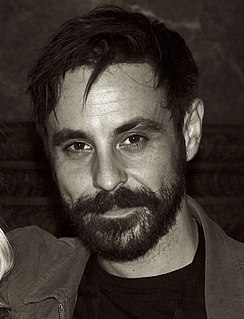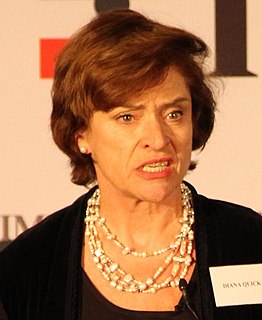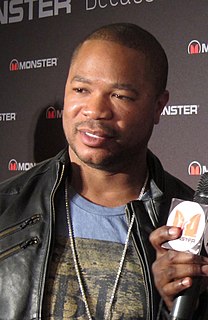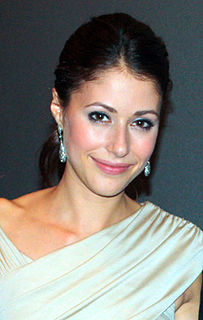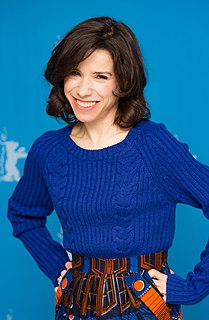A Quote by Emun Elliott
I'm definitely not your stereotypical actor: the loud, cackling type who strolls into a room and grabs everyone's attention with a great story. I've always been much more of a listener.
Related Quotes
If you're a certain type of actor, then eventually stepping into a director's shoes is a natural transition. I've always been the actor who's very focused on the narrative, where my character is in the story, and how I can benefit the story. I've always had a technical aspect of what the lens is, how the camera is going to move, how I can feed the information the director applies within that move. If you're that type of actor, narrative-based, technically proficient, the next step is actually not that far.
I wouldn't have thought that the techniques of story-telling, which is what the novel is after all, can vary much because there are two things involved.There's a story and there's a listener, whose attention you have to keep. Now the only way in which you can keep a reader's attention to a story is in his wanting to know what is going to happen next. This puts a fairly close restriction on the method you must use.
Disney is very much a child's theater - it's a very specific kind of acting. It's loud and boisterous with the goal to draw the attention of children and keep the attention of children, and it can kind of be cheesy and loud, and I had to unpack a lot of that, because as an actor, you kind of internalize, and you basically become a character.
We should all know this: that listening is not talking; [it] is the gifted and great role and the imaginative role. And the true listener is much more beloved, magnetic than the talker, and he is more effective, and learns more and does more good. And so try listening. Listen to your wife, your husband, your father, your mother, your children, your friends; to those who love you and those who don't, to those who bore you, to your enemies. It will work a small miracle. And perhaps a great one.
The story you envision as you start out is always a great story; when the facts turn out to be different from, or more complex than, what you expected, your first reaction is always disappointment. That's when you must fight the urge to bend the story to your preconceived notions. First, it's dishonest. And second, in the end, the truth is always the best story.
I think there's a danger with any great art, that if you begin to test your ideas on other people, and get their opinions before making decisions, or if you pay too much attention to what other people say about what you create, that it really pollutes your expression. I think that I'm much more about pure art and honesty and expressing exactly what I feel, and not caring so much what anyone says. However, I do respect, and I do pay attention to everyone's comments. And I do take them into consideration. But I don't base my decisions by it
Working in television it's really great to be able to stick with a character for a long period of time. It's not like you have one shot, and that's it. You have more time, more room, an ability to reflect on your performance and the character and how much has really been shown, and what you'd like to see. It's nice. You have more breathing room.
Characters that are not the norm or a bit out of the ordinary are always a challenge as an actress. You learn more by using different tools for those type of characters. They are always much more fun to play and much more interesting. They take you places that you wouldn't necessarily go in your everyday life.
